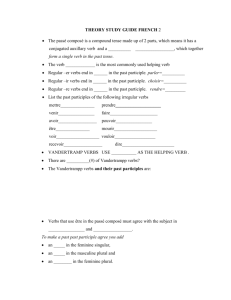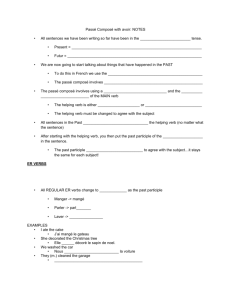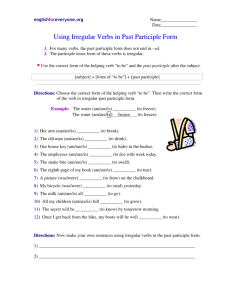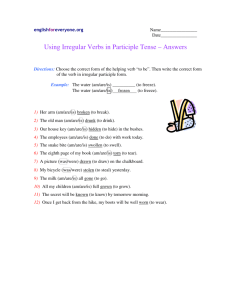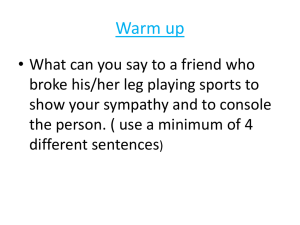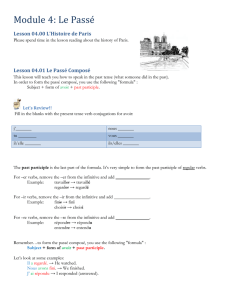Passé Composé
advertisement
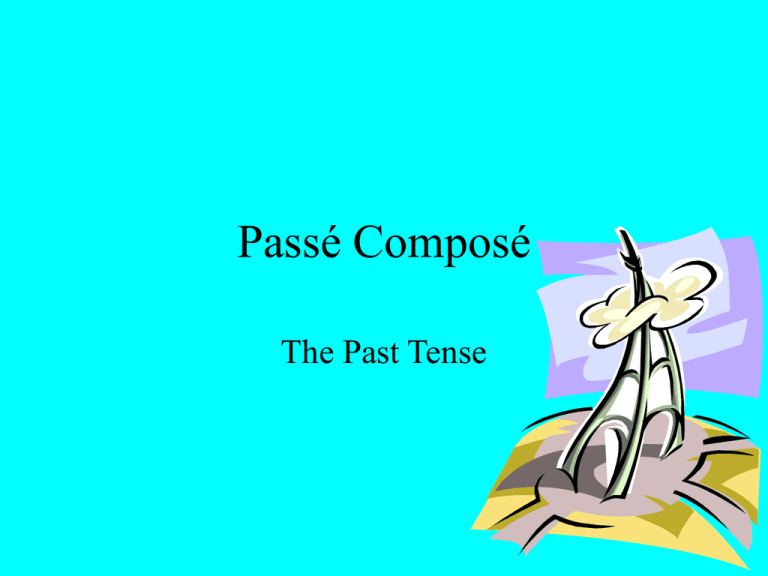
Passé Composé The Past Tense Le Passé Composé • • The past tense is used to express an event that occurred in the past and is complete. To do this in French you use: 1. The present tense conjugation of the helping or auxillary verb. a. this can be either avoir or etre 2. Add the past participle Note: the following examples are with avoir. The Past Participle 1. The past participle is different for each group of verbs. a. For group 1 ‘er’ verbs: remove the ‘er’ and add é. Je parle - I speak J’ai parlé - I spoke The Past Participle c. For group 2 ‘ir’ verbs: remove the ‘ir’ and add i. Je finis J’ai fini - I finish - I finished The Past Participle b. For group 3 ‘re’ verbs: remove the ‘re’ and add u. J’attends J’ai attendu - I am waiting - I waited The Past Participle 2. The irregular verbs also have irregular past participles. d. Here is a list of some of the irregular past participles: Avoir-eu Etre-été Pouvoir-pu Vouloir-voulu Comprendre-compris Prendre-pris Apprendre-appris Aller-allé(être) Faire-fait Le Passé Composé with être • Not all verbs use avoir as the helping or auxillary verb. • Verbs which show motion with a change in location use the verb être as the auxillary or helping verb. Je suis allé - I went Le Passé Composé with être • When être is used, the past participle agrees in number and gender with the subject or subject pronoun. – That means that if the subject is feminine, you add an ‘e’ to the past participle. – If the subject is plural, you add an ‘s’ to the past participle. – If the subject is feminine plural, you add an ‘es’ to the past participle. » Elle est allée She went » Ils sont allés They went » Elles sont allées They(girls) went Feminine Masculine plural Feminine plural

